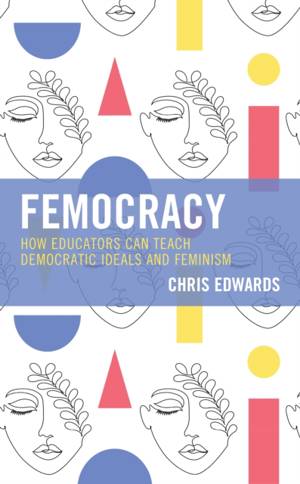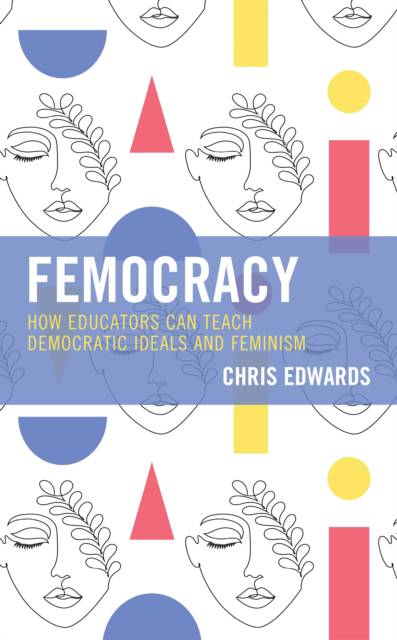
- Afhalen na 1 uur in een winkel met voorraad
- Gratis thuislevering in België vanaf € 30
- Ruim aanbod met 7 miljoen producten
- Afhalen na 1 uur in een winkel met voorraad
- Gratis thuislevering in België vanaf € 30
- Ruim aanbod met 7 miljoen producten
Zoeken
€ 186,95
+ 373 punten
Uitvoering
Omschrijving
In Femocracy: How Educators Can Teach Democratic Ideals and Feminism, Chris Edwards discusses why the rise and spread of feminism should be at the center of the world historical narrative instead of being treated as a historical subheading. For cultural reasons, feminism grew out of democratic ideals right after the Protestant Reformation and developed into the most powerful force currently shaping the world. Edwards posits that traditional "Western civ" narratives often connect the Protestant Reformation to the Enlightenment and the Enlightenment to the development of participatory governments; however, given that democratic ideals also produced feminism, it is time to recognize that the most impressive outcome of the Enlightenment is not that it produced revolutions in America and France, but rather that it inspired the genius of Mary Wollstonecraft. Femocracy means "rule by the feminine" and as cooperation, communication, and nonaggression become the dominant themes of the modern world; it is time to rethink our traditional historical narratives. Femocracy is an indispensable work for teachers of history, sociology, and women's studies.
Specificaties
Betrokkenen
- Auteur(s):
- Uitgeverij:
Inhoud
- Aantal bladzijden:
- 174
- Taal:
- Engels
Eigenschappen
- Productcode (EAN):
- 9781475860863
- Verschijningsdatum:
- 1/08/2021
- Uitvoering:
- Hardcover
- Formaat:
- Genaaid
- Afmetingen:
- 152 mm x 229 mm
- Gewicht:
- 430 g

Alleen bij Standaard Boekhandel
+ 373 punten op je klantenkaart van Standaard Boekhandel
Beoordelingen
We publiceren alleen reviews die voldoen aan de voorwaarden voor reviews. Bekijk onze voorwaarden voor reviews.








